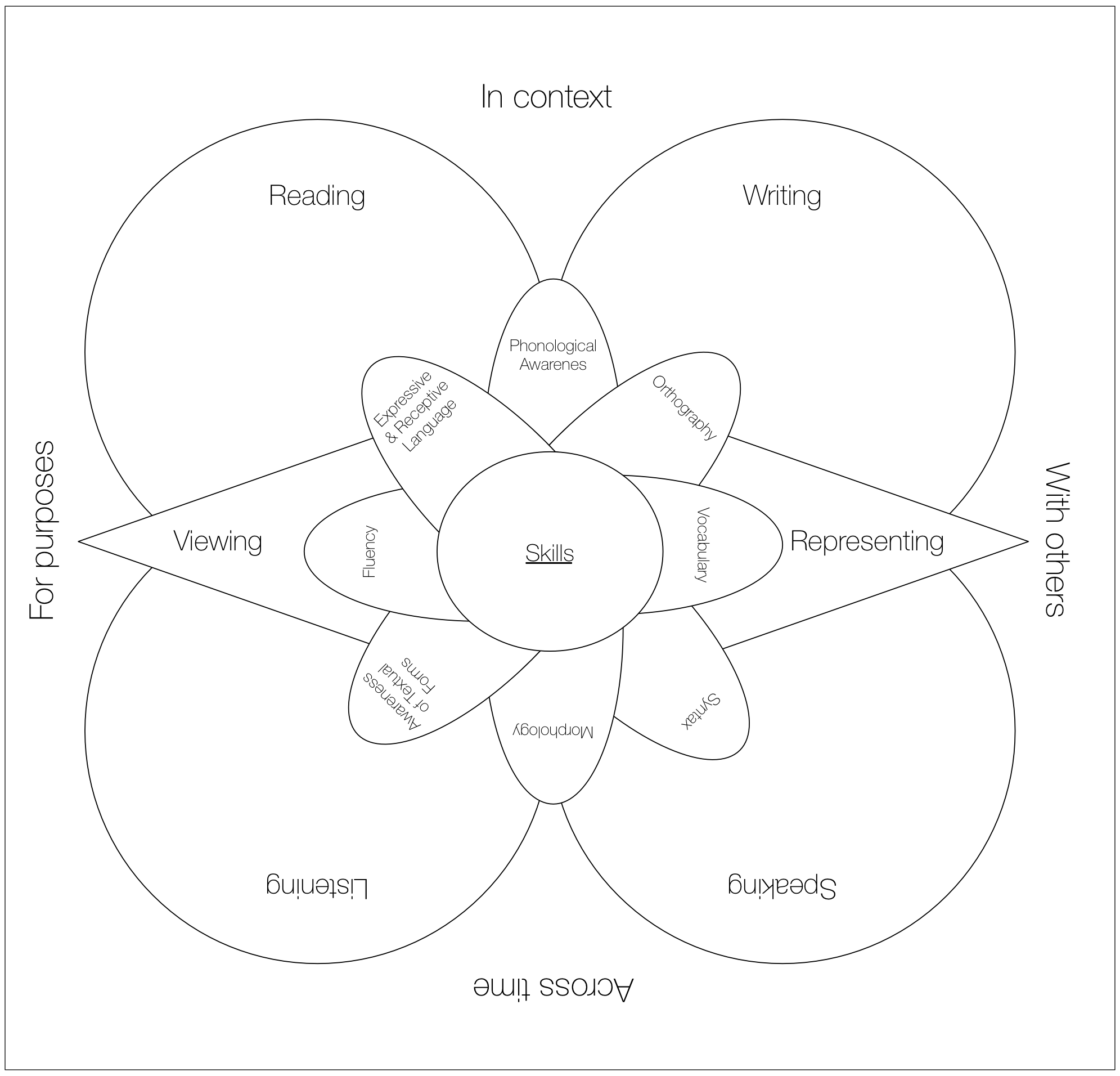
Receptive and Expressive Skills
Learner should be brought into language and literacy practices in context collaboratively with others and developed over time in purposeful, meaningful ways. It is in this context that core linguistic and literacy skills can be focused upon.

Components of Balanced Literacy Pedagogy
Inspired by Au, K. H. (2002). Balanced Literacy Instruction: Addressing Issues of Equity. In C. M. Roller (Ed.), Comprehensive Reading Instruction Across the Grade Levels: A Collection of Papers from the Reading Research 2001 Conference (pp. 70–87). International Reading Association.

Conditions for Equitable Opportunity to Learn (OTL)
Inspired by DeStafano, J. (2012). Opportunity to learn: a guide to education project design based on a comprehensive literature and project review. Washington D.C.

Literacy is a Human Right
Learners benefit from (a) coherent, developmental instruction; (b) passionate and visionary teachers; (c) access to quality materials and resources; and (d) a respect for learners' culture and experiences.




